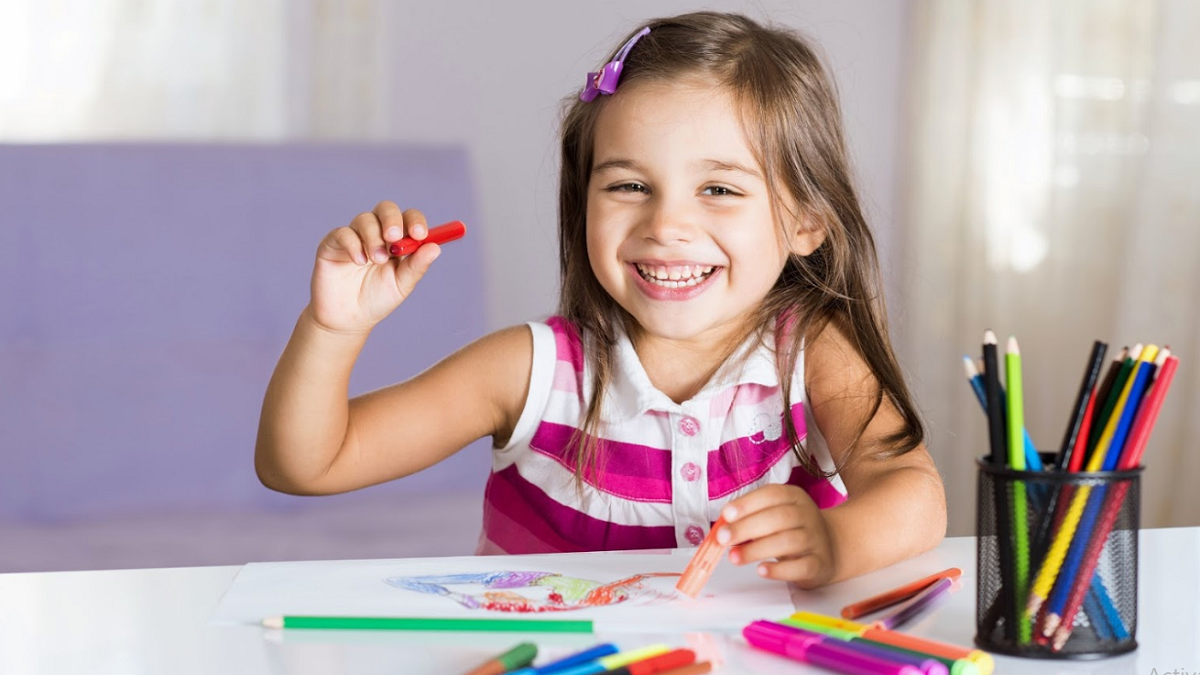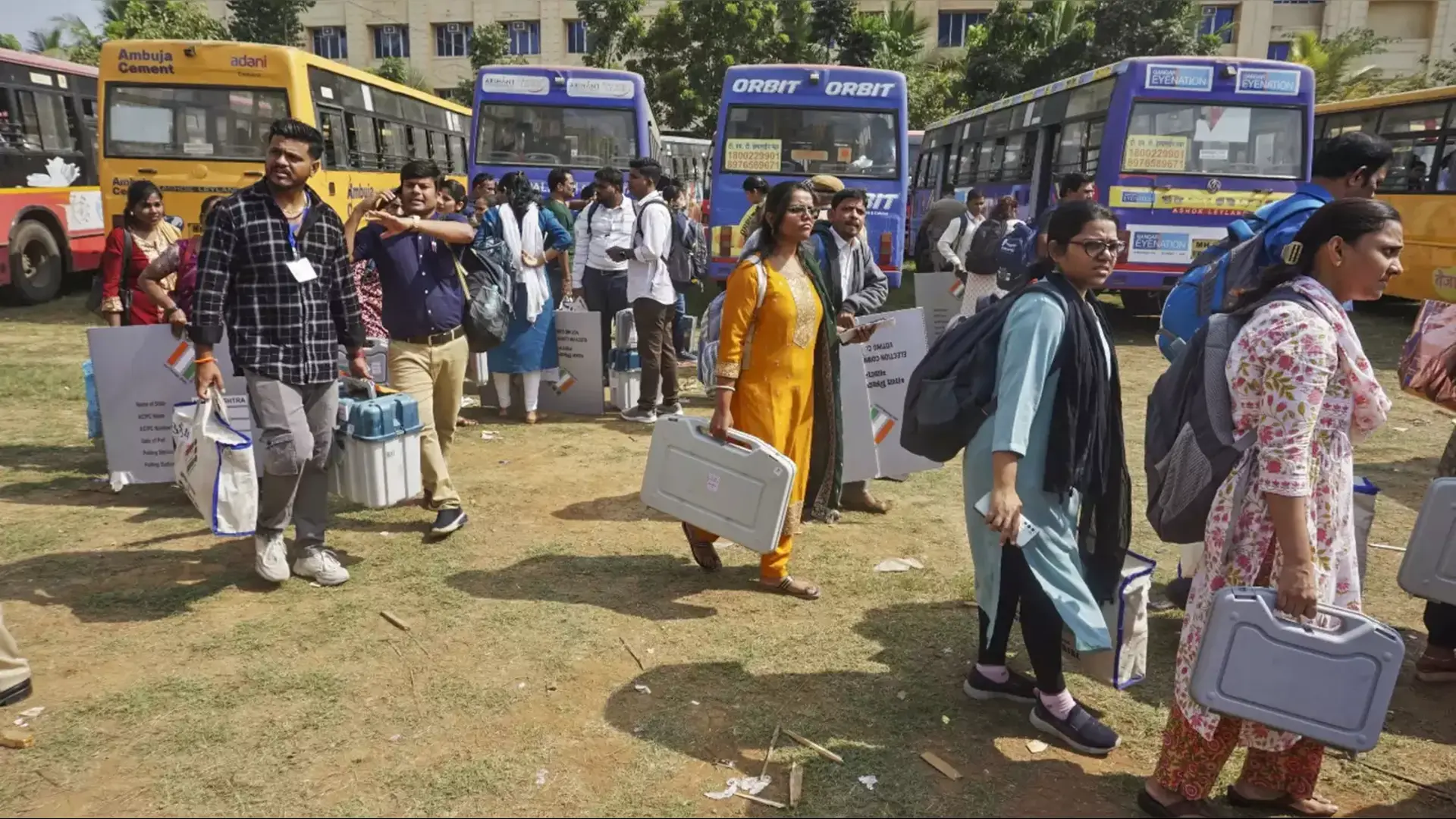
With kids be – ing confined to their homes for months now due to Covid-19, they seem lonely, confused, irritated and even anxious. So much so that health experts are worried about the physical and emotional implications the lockdown will have on them. Suddenly the playgrounds, schools and even malls have become forbidden places for them.
The real school has been replaced by a virtual one, thanks to ‘digital classrooms’. While this ensured continuity in learning for students, increased screen exposure has become a cause of concern for parents.

So, what should we, as parents, do? Experts believe kids should be encouraged to indulge in new, innovative activities at home. They should take at least an hour out to draw, play, paint or do whatever they enjoy. Kids of all age groups can engage in lockdown activities such as face painting, treasure hunt, balancing a balloon, ball dribbling, gardening, making a pyramid out of utensils. “Hide and seek in a rice bowl to teach kids about various other grains, making shapes and emojis with the dough will require knowing how to knead it and putting the concept of sink and float to test through various household items — all this promotes learning and fun,” says Ritvik Chauhan, founder and managing head of Giggle and Grow Childcare.
In the current scenario, parents must remember that as children have been confined to their houses for an extended period, it is natural to notice a significant increase in their boredom along with a potential of an adverse impact on their psychological wellbeing. Therefore, it is important to give them more space, encourage them to engage in art, creativity or any other hobbies of their interest. “If possible, the family should do activities together. We need to provide adequate stimulation for their minds. These are unprecedentedly difficult times, therefore, spending time together will also add to a sense of stability and bring positivity and meaningfulness both in their lives as well as ours,” says Dr Samir Parikh, director, Department of Mental Health and Behavioural Sciences, Fortis Healthcare.
Not only children, in the past few months, parents too are preoccupied with a lot of responsibilities, more than ever. Amid managing work from home and work at home, you may overlook the impact of the current crisis on the kids. Child psychologist Dr Vidya Ganapathy opines, “Parents know by now, from personal experience, that the global pandemic has created huge demands on their parenting routines. They are juggling between child and elder care, work from home, online schooling, all this while trying not to panic about Covid-19.”
Parents have to create an environment where kids can freely communicate their thoughts. It can’t be ignored that children are vulnerable; therefore, parents should help them cope up with the tough reality. They should take out time from their demanding schedules and devote it to their child’s well-being which will take away the worries and bring them joy, forming a major chunk of their memories during Covid times.
Children are all the time at home and struggling to keep up with online school programmes. Art therapy can help them not only to calm down but also express their anxiety and thoughts more freely. “As children are being bombarded with instructions throughout the day while indulging the child’s creativity, keep these to a bare minimum. Letting the child do the talking or just guiding him or her is the best way forward. It is not about the end product but the medium which helps the child to express his or her feelings,” says Surabhi Verma, founder of Sparsh for Children.
Meanwhile, to engage school students, Kalam Centre teaches science through stories and fun activities besides hosting webinars by inviting leading experts including astronauts to share their knowledge and experience. “We teach kids to dream for the stars and use that dream as an anchor point to teach them traditional science. We make the dreams of a child the plank of all our activities. That is the basis of our content to every child. We believe in the phrase, ‘When you wish upon a star, it doesn’t matter who you are’,” says Srijan Pal Singh, CEO of Kalam Centre.
“Children must receive adequate physical and cognitive stimulation daily and experience continuous learning,” says Meghna Yadav, head training and development at KLAY Preschools, as she reminds how they are trying to build a routine that children — between 2 and 6 years — thrive in. “It includes physical activity, art and craft, math, language, sessions on general awareness, music and storytelling,” adds Yadav.
Even the digital content creators are gearing up to introduce new, interesting formats for kids. “The lockdown presented an opportunity for us to go beyond video and discover other formats such as eBooks, audio stories and quiz games for young minds,” says Ashutosh Parekh, head content, Voot Kids. “Screen smitten generation of young consumers will increasingly need both — monitoring not just how much they are consuming but also what they are consuming and at what age! Decisive platform features and strong content curation are tenets that will play a pivotal role. At a macro level, this is a part of the habit-building journey where moderation and discretion will continue to do the tightrope walk, as a shared responsibility across the ecosystem,” Parekh signs off.
















